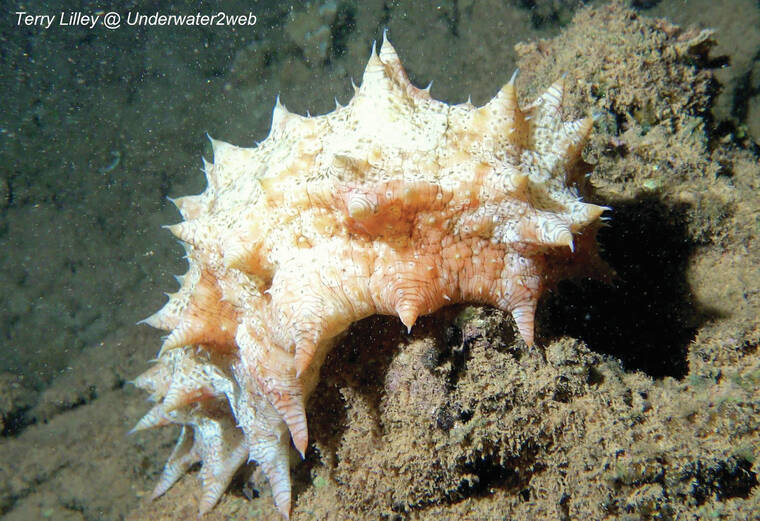We have over a dozen sea cucumbers that call Hawaiian waters home, and most of them are called “loli.”
We have over a dozen sea cucumbers that call Hawaiian waters home, and most of them are called “loli.”
They range from three feet long to about six inches long, but they all provide an important service to our coral reefs! Sea cucumbers are the vacuum cleaners of the sea floor. They feed by sweeping the sea floor and taking in decaying organic material then filtering out the food and pooping out the clean sand. Much of the beautiful beach we sit on is actually sea cucumber poop! If all of the sea cucumbers were gone our beaches would be brown with stinky, decaying organic material.
Kaua‘i is so isolated that we have our own species of corals that only exist in Kaua‘i and Ni‘ihau, and DNA testing is being used to better understand the unique marine life around Kaua‘i. We also appear to have our own species of sea cucumbers, and I have found several at ‘Anini Beach that as of yet we have not identified.
Pretty cool to think that right outside of our beach home there are creatures that science is not yet aware of. I do a lot of night snorkels at ‘Anini and often see over 100 sea cucumbers out cleaning. I found the one in this picture that as of yet we have not been able to identify!
Sea cucumbers are pretty bizarre creatures because they lay on their side and have a mouth and a rear end but they have teeth and breath through their rear end, not their mouth! Sea cucumbers are eaten by many predators including humans and they have a strange way of protecting themselves. When threatened they often expel their internal organs out of their rear end for the predator to feed on until they can slowly escape. Without any of their internal organs they can’t feed for a while, but the organs grow back within about 30 days and they are back cleaning the sea floor!
Sea cucumbers are often collected and sold to the Chinese to be made into a soup, and also dried to be used as medicine. This has been a problem in the past here in Hawai‘i because if the loli are over-collected then the entire health of the reef can be damaged, so we need some rules set up to have “sustainable” collecting.
•••
Terry Lilley is a marine biologist living in Hanalei, and co-founder of Reef Guardians Hawai‘i, a nonprofit on a mission to provide education and resources to protect the coral reef. To donate to Reef Guardians Hawai‘i go to www.reefguardianshawaii.org.



